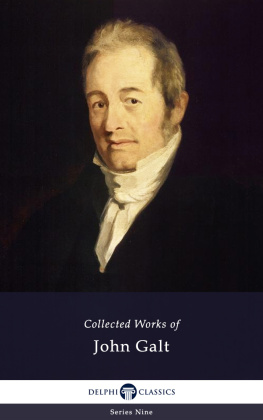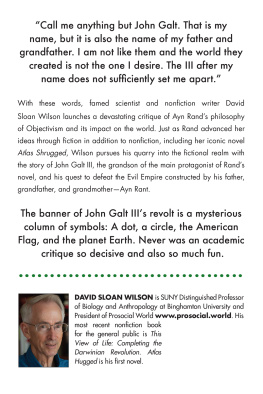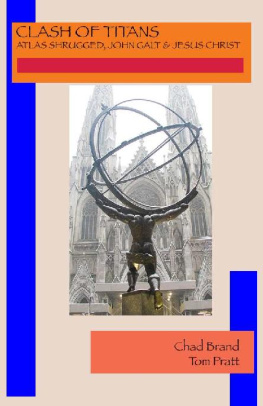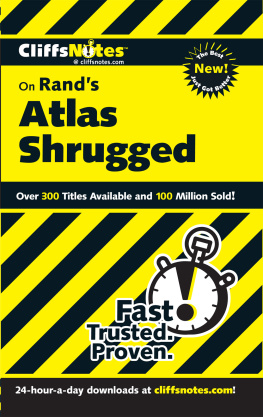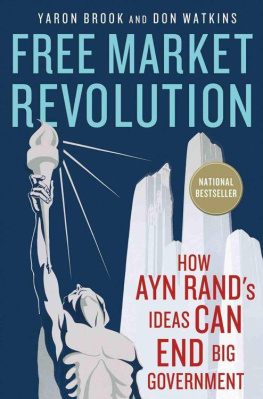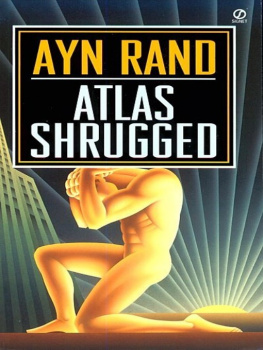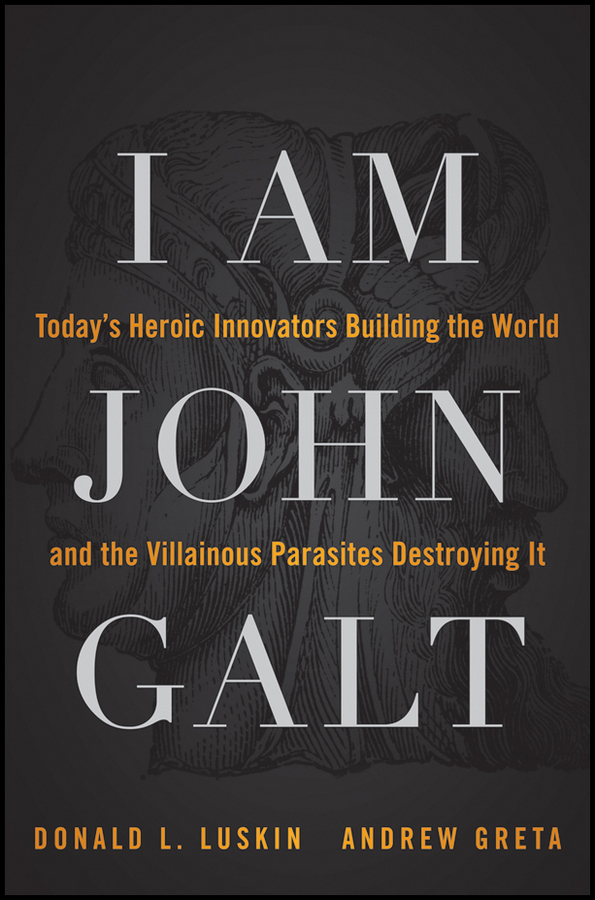Contents

Copyright 2011 by Donald L. Luskin and Andrew Greta. All rights reserved.
Published by John Wiley & Sons, Inc., Hoboken, New Jersey.
Published simultaneously in Canada.
No part of this publication may be reproduced, stored in a retrieval system, or transmitted in any form or by any means, electronic, mechanical, photocopying, recording, scanning, or otherwise, except as permitted under Section 107 or 108 of the 1976 United States Copyright Act, without either the prior written permission of the Publisher, or authorization through payment of the appropriate per-copy fee to the Copyright Clearance Center, Inc., 222 Rosewood Drive, Danvers, MA 01923, (978) 750-8400, fax (978) 646-8600, or on the Web at www.copyright.com . Requests to the Publisher for permission should be addressed to the Permissions Department, John Wiley & Sons, Inc., 111 River Street, Hoboken, NJ 07030, (201) 748-6011, fax (201) 748-6008, or online at http://www.wiley.com/go/permissions .
Limit of Liability/Disclaimer of Warranty: While the publisher and authors have used their best efforts in preparing this book, they make no representations or warranties with respect to the accuracy or completeness of the contents of this book and specifically disclaim any implied warranties of merchantability or fitness for a particular purpose. No warranty may be created or extended by sales representatives or written sales materials. The advice and strategies contained herein may not be suitable for your situation. You should consult with a professional where appropriate. Neither the publisher nor authors shall be liable for any loss of profit or any other commercial damages, including but not limited to special, incidental, consequential, or other damages.
AYN RAND is a registered mark of the Estate of Ayn Rand.
For general information on our other products and services or for technical support, please contact our Customer Care Department within the United States at (800) 762-2974, outside the United States at (317) 572-3993 or fax (317) 572-4002.
Wiley also publishes its books in a variety of electronic formats. Some content that appears in print may not be available in electronic books. For more information about Wiley products, visit our web site at www.wiley.com .
Library of Congress Cataloging-in-Publication Data:
Luskin, Donald L.
I am John Galt : todays heroic innovators building the world and the villainous parasites destroying it / Donald L. Luskin and Andrew Greta.
p. cm.
Includes index.
ISBN 978-1-118-01378-6 (hardback); 978-1-118-10096-7 (ebk.); 978-1-118-10097-4 (ebk.); 978-1-118-10098-1 (ebk.)
1. EntrepreneurshipBiography. 2. Creative ability in business. 3. Self-esteem.
I. Greta, Andrew. II. Title.
HC29.L87 2011
338'.040922dc22
2011010991
To Christine, Roark, and Roark
Don
To my wife Emily, and daughter Lucy
Andrew
Introduction
Who is John Galt? Ayn Rand asked that question over and over as a catchphrase in Atlas Shrugged , one of the best-selling and most inspiring novels of all time. The question was a cry of despair in a desperate time not unlike our ownthe equivalent of Whats the use? More precisely, it meant Where are the great men and women who could inspire us? Thats a question many are asking today. The world portrayed in Atlas Shrugged is racked by a pervasive economic and social crisisits eerie similarity to our own real world today is one of the reasons it is selling more copies than ever, 50 years after it was first published.
Your personal answer to Rands question could be I am John Galt. Yes, you , the person reading these words now in an increasingly quaint hard copy, or on your handheld digital reading device. You can be one of the epic heroes of Rands bookslike John Galt himself, her greatest herothe ones who fight despair, overcome relentless opposition, and lift the world out of desperation.
We think thats the real secret explaining why Rands fiction Atlas Shrugged (1957), but also The Fountainhead (1943), We the Living (1936), and Anthem (1938)are so timeless. Simply stated: they are inspiring. Rand set out to portray ideal men and women, and she did. The heroes and heroines of her novels are individualists, innovators, and iconoclasts. They are achieversin business, in the arts, and in love. Their ordeals are the ones that all potentially great people face. Whats special about them is that in the course of Rands novels, they discover and put to work core philosophieslife strategies, reallythat lead ultimately to triumph.
You can do it, too. Our proof is the heroes we portray in this book. They faced all the same challenges you do. And yet they made themselves great by following the same life strategies that Rands heroes didsome of them quite self-consciously, others without having ever even heard of Rand as far as we know. This book shows you what their life strategiestheir philosophiesare, and how they map with great precision to the philosophies of Rands heroes.
Yes, the world portrayed in Rands books was the world of the industrial erawhen leading-edge technologies were railroads and steel mills. Todays Randian heroes run software companies, not railroads. They manufacture semiconductors, not steel. But the principles of success are the same. The philosophy is the same, and Rand laid it all out more than 50 years ago.
Unfortunately, Rands villains are alive and well in todays world, too. We portray them here as proof that collectivism, self-abnegation, envy, power lust, and, most tellingly, the corrupt alliance of business and government are all strategies for personal ruin. And they spill over into horrific consequences for the world. As youll see, the economic paroxysm that rocked the world late in the first decade of the 2000s was caused specifically by individuals operating perfectly in the mode of Rands parasitic villains.
So as another timeless book puts it, our real world and Rands fictional world are both the best of times and the worst of times. Our heroes have created personal wealth never before seen in history by creating technological marvels that were thought, just a few years ago, to be impossibilities found only in science fiction. Our villains very nearly succeeded in bringing the world economy to its knees. Such is the power of ones personal philosophy. Such is the power of your choice.
Whom do you choose to be like? Do you want to be like Bill Gates? Gates is reviled as a monopolist and a plutocrat akin to Rands hero Henry Rearden, the steel tycoon. His own government came within inches of branding him a criminal and breaking up his company. If you agree hes a hero, you need to read this book to learn what he did to became one. If you think hes a villain, you urgently need to read this bookwell show you that his greatness is to be celebrated, not feared. Do you want to be like Steve Jobs? He dropped out of school to follow his professional passion like Rands hero Howard Roark. Even after he became rich and famous, over and over again Jobs risked his fortune on new and untried technologiesjust because he thought they were so damn cool. Now his company is one of the most valuable on the planet. Yet hes widely regarded as a pirate who steals the ideas of others, and an autocratic son of a bitch entirely incapable of working with people. If you agree that hes a hero, maybe one of the reasons is that youre reading this on an iPadone of Jobss many magical innovations that have transformed our culture. If you think hes a villain, go out and get an iPadit might change your mind.


